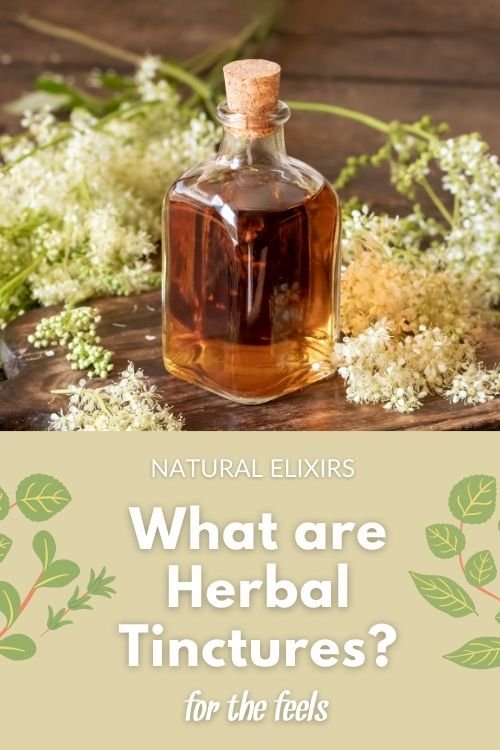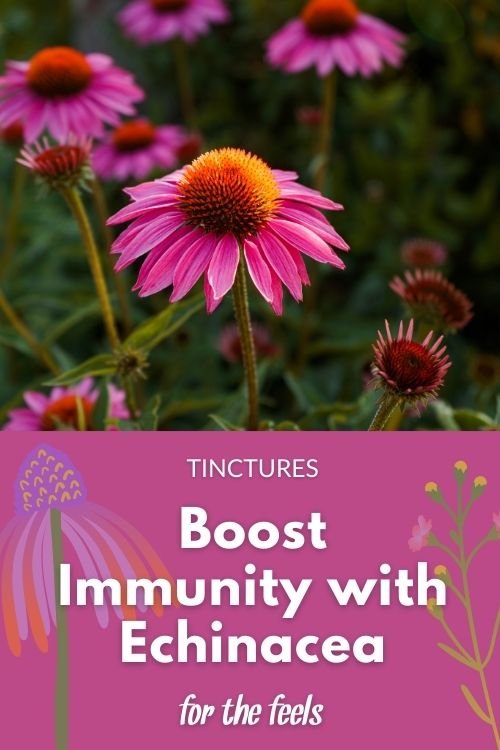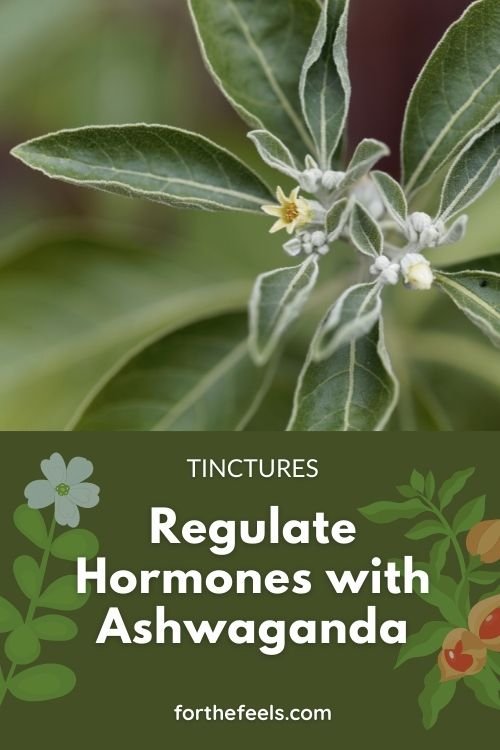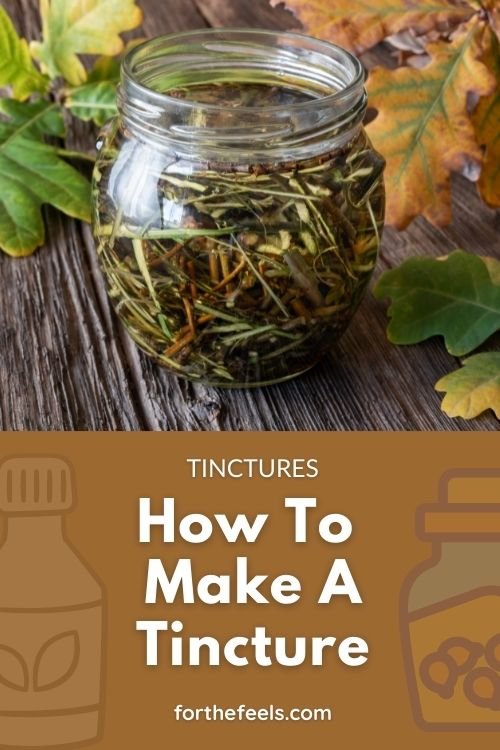What are Herbal Tinctures? | How to Use Herbal Tinctures? | Elderberry Tincture | Turmeric Tincture | Echinacea Tincture | Ashwagandha Tincture | Cannabis Tincture | How to Make Tinctures | Alcohol-Based Tinctures | Disclosure
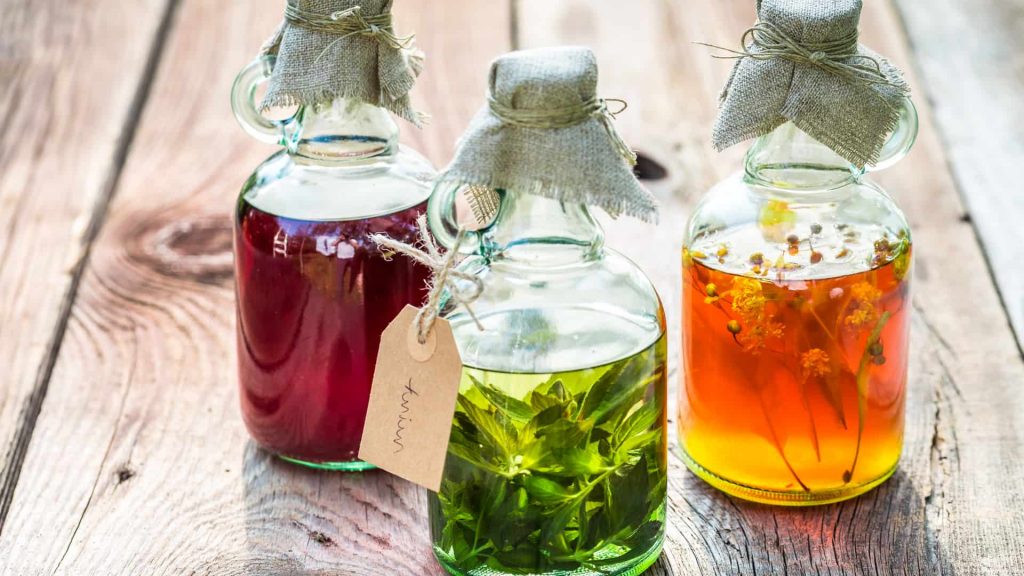
Tinctures are a fabulous and potent way to remedy an ailment naturally. Taken orally – tinctures can provide great healing effects to a problem that needs treatment.
You can purchase a commercial grade tincture, but you can also make one yourself with ingredients you may already have at home.
A Home Apothecary is a collection of many different natural ingredients that have various health applications and benefits. Some ingredients can be combined to create traditional tinctures and concoctions, and others can create very potent elixirs that need to be handled with care.
Do you want to alleviate a common cold? Use a black Elderberry tincture to fight off the infection.
Do you want to relax and ease tension? Use Cannabis Tinctures, they have cannabinoids that are known to relieve anxiety. These blends are known to possess a great potential for antioxidant activity through their phenolic compounds.[1]
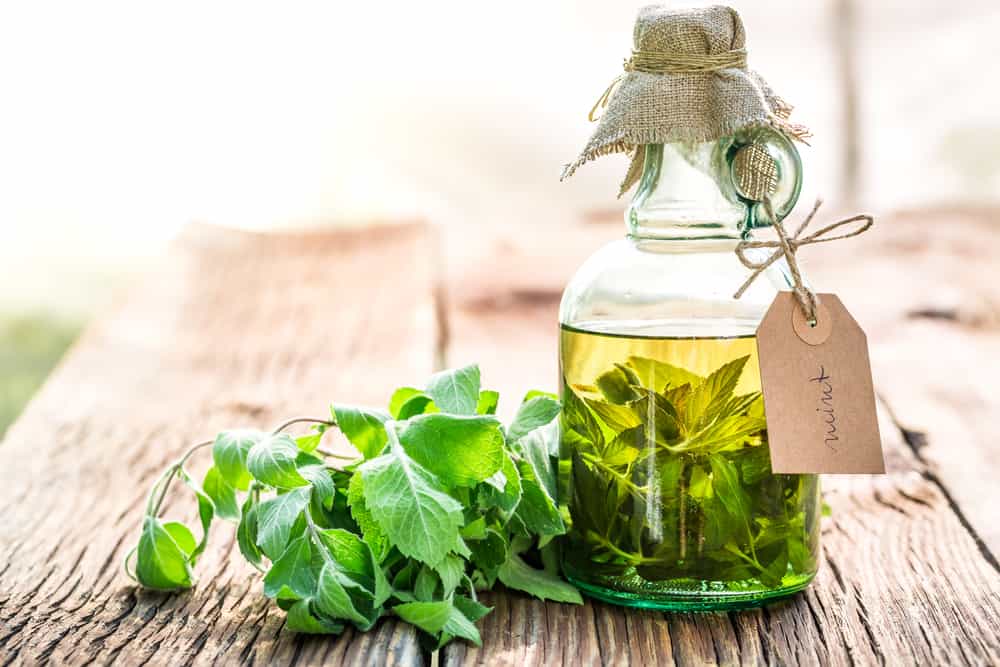
Naturally Occurring Healing Properties
Natural ingredients have the potential to heal and enhance the senses and the body depending on the intention and combination it is being used for.
For example, Carrier Oils can be used as a base ingredient or in a much more complex formula to treat skin issues. Essential Oils can be used for therapeutic and aromatic effects, promoting better psychological and physiological health.
Tinctures are created to extract the medicinal properties of a natural ingredient to be used, in most cases, as a treatment for an ailment or to enhance sensory channels. The phenolic content of a small batch tincture can contain over 100s of phenolic compounds, like Flavonoids.
Nature has provided this earth with a bountiful amount of resources that should be collected, used, shared, and studied. There is a lot of knowledge available on the internet, and building your own home apothecary can help save you from the high costs of regular medicine and generic drug-store ointments.
What are Herbal Tinctures?
A herbal tincture is a liquid extract of herbs or other substances dissolved in alcohol and water.
Tinctures have been around for a millennium and are a key component of traditional herbal medicine.
They come from an old word that means “to tinge” because it is often used for adding color to something, but they have many medicinal uses as well.
Tinctures can be made by soaking the bark, leaves, berries, rhizomes, or roots of a plant in alcohol or vinegar.
The alcohol ratio and plant material proportions can be varied to produce different levels of constituents (remnants).
The healing agents of the medicinal plants will be preserved and will withstand months of storage.
A form of traditional medicine that can be just as effective as pharmaceutical drugs is an herbal tincture. Herbal tinctures can be prepared by the user, or purchased at health food stores. Many people opt to buy tinctures that have been tactfully prepared with quality control methods. These natural products are generally comprised of flower extracts with a percentage of alcohol content.
Fresh tinctures can be made at home and do not require too much skill or knowledge, you can simply just pour your ingredients into a glass jar, and wait.
How to use Herbal Tinctures?
Tinctures are liquid herbal extracts that can be taken orally by using a dropper to place the extract under your tongue. To use a tincture, fill up a dropper with the desired dosage and mix with water or honey and drip it into your mouth just below the tongue; hold there for about 5 seconds before swallowing.
Rinse your mouth thoroughly with water to get rid of the bitter taste. The precise dosage varies from person to person, but it is best not to take too much (more than 2 small droppers full). Do not give tinctures or alcohol-based extracts to children, pregnant women, or people who are using many prescription drugs because tinctures are effective and absorbed immediately into the bloodstream.
Tincture preparations can vary, some more potent than others. Be mindful, when dosing to correctly measure your quantities. Tinctures that come in 1:3 are generally less potent as the formula is 1 part herb to 3 parts liquid. Herbal Extracts are 1:1, meaning 1 part herb to 1 part liquid, condensing the remnants of the herbs into a stronger formula.
Some people find the taste of herbs in this form to be too strong and prefer to add them into a mixture with juice, tea, or soda. It can be diluted and added to filtered water, or to your favorite fruit juice to mask the bitterness.
The alcohol content can also be too much for certain individuals. To avoid this, it is best to evaporate the alcohol content of the liquid before taking the tincture. In order to eliminate the alcoholic effect of your Tincture, you can drink it in a hot cup of tea. The hot water will help the alcohol slowly evaporate.
Another more effective method is to simply pour a tablespoon’s worth into boiling water then let sit covered at room temperature overnight; stir periodically if desired so all plant particles are steeped – usually, about 12 hours for maximum evaporation.
Some Common Plants Used for Herbal Tinctures
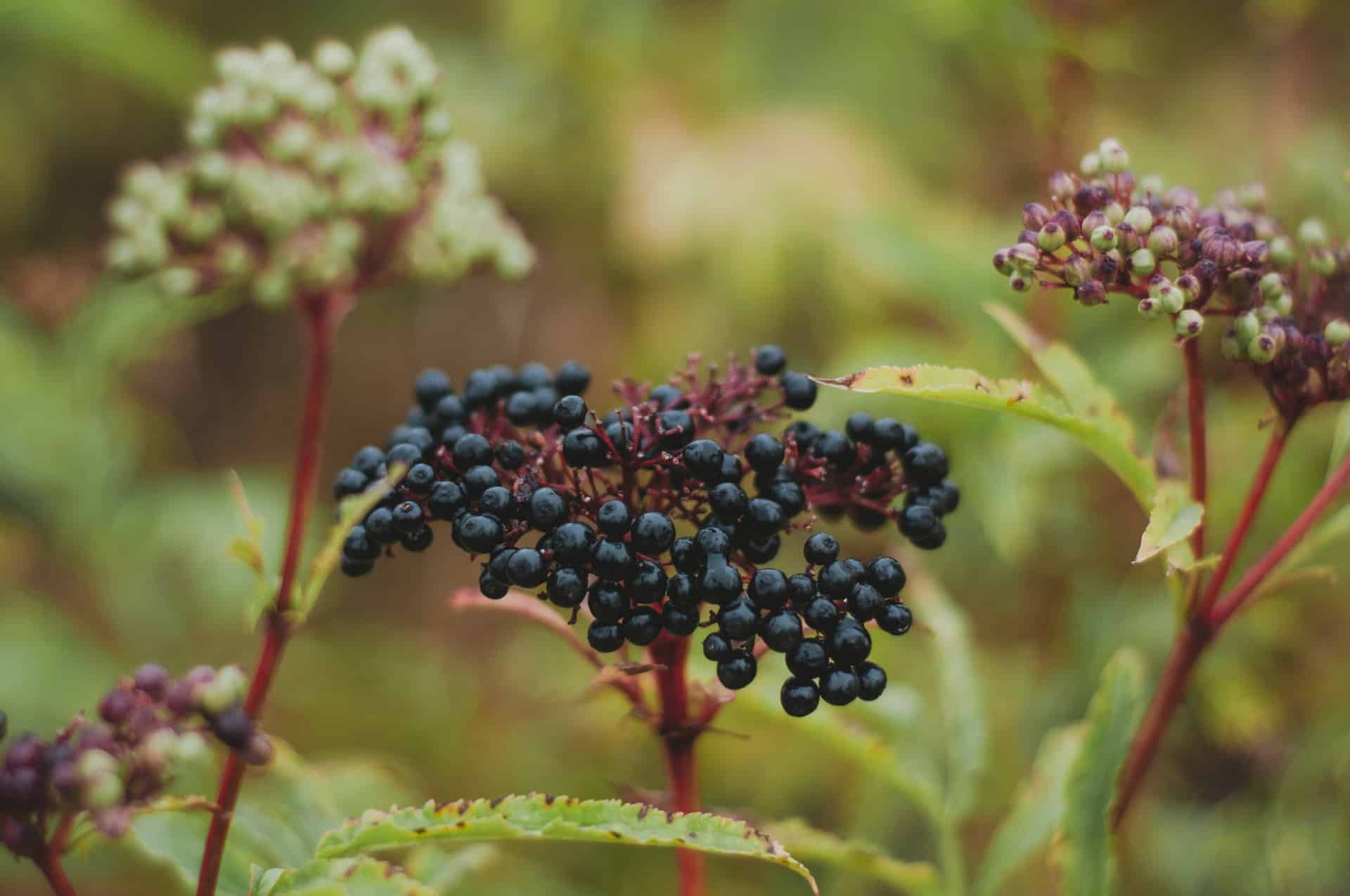
Elderberry Tincture a Natural Antioxidant
Like many of the blue, purple, and black food families are regarded for their antioxidant properties, elderberries are a delicious and colorful antioxidant powerhouse. One of the plant species with the highest richness in anthocyanins is Sambucus nigra L., commonly known as elderberry. [2]
Research suggests that anthocyanins can help reduce inflammation and treat many symptoms due to oxidative stress. Is there a way to copy the good effects of elderberry? A tincture may be able to do just that. For a tincture novice, purchasing your tincture ready-made is highly recommended; as preparing elderberry can be severely toxic if improperly prepared and handled (every part of the plant, but the fruit [cooked] itself is poisonous).
Turmeric Tincture to Reduce Inflammation
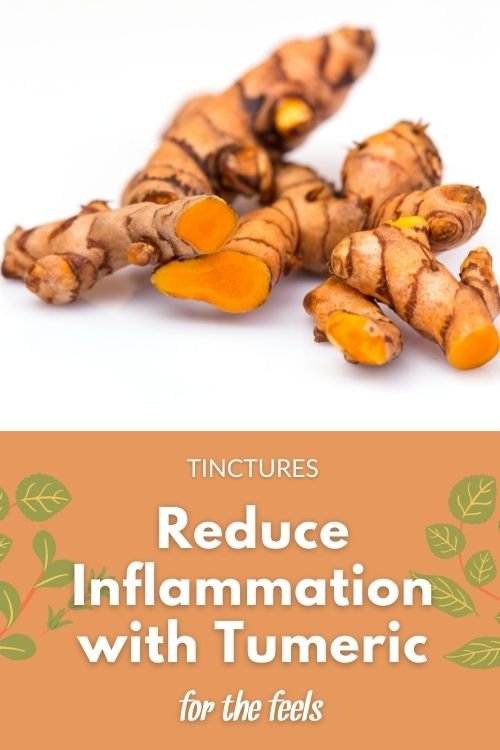
Turmeric Tincture may help relieve inflammation-related pain, which is why it’s a popular home remedy for people around the world.
Curcumin (an anti-inflammatory compound) regulates our immune system by reducing histamine production from mast cells.
Recent studies show it may also be able to reverse heart disease by improving the function of your blood vessels’ lining; thus preventing factors such as clotting or high pressure.
Curcumin contains dietary salicylates, which is derived from the plant’s salicylic acid (the defense mechanism the plant produces when enduring stressful environments). Salicylic acid is the main active ingredient found in Aspirin.
Turmeric tinctures can also reduce arthritis knee pain and other symptoms associated with joint swelling or stiffness including backaches from osteoarthritis.
Echinacea Tincture to Boost Immunity
Echinacea tinctures have long been used as a herbal remedy to boost the immune system.
It is also commonly employed for treating many ailments such as common colds, psoriasis, and other skin diseases (topically), urinary tract infections, vaginal yeast infection, wounds on the skin (topical), and ulcers in one’s mouth or throat (to be taken orally).
There have been plenty of studies conducted that prove Echinacea has overall positive effects on the physical health and mental wellbeing of a patient.
“Several dozen human experiments–including a number of blind randomized trials–have reported health benefits. The most robust data come from trials testing E. purpurea extracts in the treatment for acute upper respiratory infection.” 4
If you’ve never tried an echinacea tincture before, we recommend looking for one that has been lab-tested as high quality so you know what you are getting.
With the power of Echinacea tincture, you can be on your way to a healthier and more fulfilling life.
Ashwagandha Tincture to Regulate Hormones
Ashwagandha is an ancient medicinal herb that has been used for centuries in Ayurvedic medicine.
It is said to help with combating stress and anxiety, diminishing depression, boosting fertility especially in men, and even enhancing brain function.
Ashwagandha is a heavily studied and confirmed adaptogen. “Many adaptogenic herbs demonstrated an anti-fatigue effect, particularly during times of chronic or acute stress ( Panossian & Wikman, 2009 )”.
Taking Ashwagandha Tincture restores adrenal gland function (the glands that regulate the body’s response to stress), balances thyroid levels, and reduces inflammation in the body.
Josie Marie, an avid blogger who works from home and manages a household said “using ashwagandha tincture has helped me restore my health by regulating the stress hormones in my body, my heart has stopped racing and now I can relax.”
Cannabis Tincture to Reduce Anxiety
Recently surging in popularity, the cannabis plant has also been fashioned into fine tinctures.
Cannabis Sativa has over 120 cannabinoids that can promote feelings of europhia and enhanced sensory perception [5].
It is highly recommended that the organic tinctures be purchased as hemp tends to absorb heavy metal content from the soil composition, known as bioaccumulation. Some plants absorb more mineral content than others.
Fresh cannabis plant material, also referred to as acidic cannabinoid in the scientific community will break down quicker in an alcohol solvent, and produce a stronger, more potent solution. [6]
How to Make Tinctures?
Tinctures are very popular because they are easy to make, store, transport, and use.
They can be adjusted for the preferred tastes of the individual who will be taking them. Delicate herbs such as the leaves of a plant can also be used in the extraction of a tincture.
For example, the Dandelion flower is a popular herb that is often used as an ingredient in tinctures. Rosemary leaves (herbs) can be put into a tincture to create a powerful herbal remedy.
High-proof, food-grade alcohol will be your best friend when it comes to making tinctures.
If you don’t want to use alcohol, there is a plant-based oil that can be used known as glycerin. Glycerin is not as effective at bonding to remnant compounds and will produce a less potent tincture.
Another option is using Vinegar, specifically undiluted vinegar or apple cider vinegar with an acetic acid content of about 5-7% (read more about this here). Each concoction will have a different shelf-life.
Alcohol-Based Tinctures
A pure alcohol solvent (made from corn, grape, wheat, or cane sugar) and distilled at or above 190 proof is what most commercial facilities use to make herbal tinctures.
Alcohol that is 190 proof is approximately 95% alcohol and is generally known as Everclear.
A better option for novice herbalists is to use alcohol with 50% alcohol, such as 100 proof vodka (like Absolut).
In small batches, herbalists make tinctures using vodka that has 80 to 100 proof alcohol.
Spirits that are 100 proof are a balanced solution of half water, half alcohol.
Once you select your preferred alcohol content and plant compound, creating a tincture can be measured in a ratio of 1:1 (for an herbal extract), meaning half grain alcohol and half-plant material. Or to make a less potent tincture, 1 part plant material can be used with three parts liquid (alcohol and water, 100 proof).
Using high-proof alcohol (such as over 100 proof) will yield potent herbal remnants and result in a strong extract. You can create several tincture samples to see which solution works best for you.
Use a glass jar for storage, such as a mason jar; vigorously shake the jar and store in a cool and dark area for approximately 4-6 weeks minimum.
An alcohol-based mixture can last indefinitely as alcohol does not spoil and preserves the herb material.
Disclosure
The biological activity produced by the gestation of plant-based extracts such as tinctures can have varied effects, most of which are beneficial.
Although, every individual should take into account how these products can affect their health overall.
Tinctures are not regulated by health institutions like the F.D.A., therefore research (via PubMed CrossRef Google Scholars) and a survey should be conducted before taking any tinctures, and is recommended.
The use of tinctures can promote a healthy lifestyle if used responsibly.

